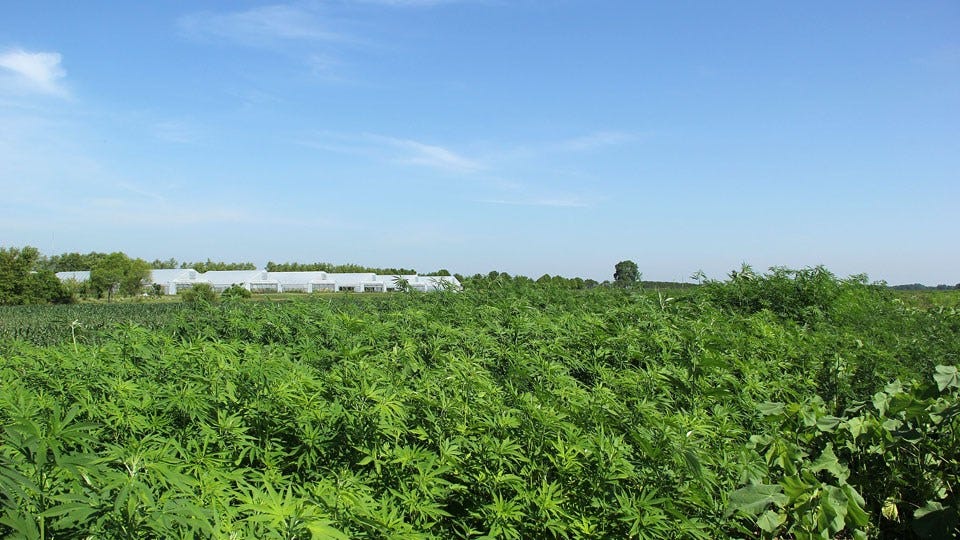Hoosier Hemp Program Submitted to USDA
 A test plot of industrial hemp at Purdue University (image provided)
A test plot of industrial hemp at Purdue University (image provided)
Subscriber Benefit
As a subscriber you can listen to articles at work, in the car, or while you work out. Subscribe NowThe U.S. Department of Agriculture has received and will begin reviewing Indiana’s state guidelines for the legal and regulated production of hemp.
The Indiana Office of the State Chemist and the Indiana State Department of Agriculture formally submitted the plan on December 26.
“It gives the overall industry some certainty about the rules of the game,” said Bruce Kettler, director of the Indiana State Department of Agriculture. “Farmers will know what they have to do and how it has to be done because it will be a regulated industry.”
The plan establishes the Indiana requirements for growing, licensing, record-keeping and testing of the crop.
USDA has sixty 60 days to review Indiana’s administrative rules to see if they comply with USDA’s federal rules and the intent of the 2018 Farm Bill.
“Could it be sooner than 60 days? We certainly hope so. That gives us time and them time if they see things in there that they want us to tweak or change or have discussions about whether we can and can’t,” said Kettler.
Hemp had been considered a controlled substance under federal drug laws due to its biological resemblance to marijuana. With the passage of the federal 2018 Farm Bill, Congress redefined the plant as a legitimate agricultural commodity.
Hemp has very low concentrations of tetrahydrocannabinol, or THC, the substance in marijuana that makes a user feel high. Indiana’s regulations require testing to verify the hemp crop is below the threshold of 0.3% THC level.
The IOSC says the 2020 growing season will continue to be a research year in Indiana which limits the number of hemp growers in the state. ISDA says since USDA didn’t release its interim final rule until October of 2019, it did not give Indiana adequate time to establish a full commercial program within the confines of USDA’s requirements.
Indiana State Chemist Robert Waltz another reason is computer software.
“Many requests made by USDA rule, cannot be supplied efficiently until our commercial software is in place, meaning that we cannot deliver the level of service that is needed externally or internally with regard to fees and licensing,” said Waltz. “The research year allows us and growers time to improve on what was done last year and build forward for 2021.”
According to the Purdue University Hemp Project, a grower must have a qualified research advisor from an institute of higher learning in Indiana to receive a license for the 2020 season.
In 2019, the state of Indiana issued 100 licenses for hemp production and growers harvested approximately 3,500 acres of industrial hemp. Kettler says this year up to 300 growers could be licensed with estimates as high as 8,000 acres.
Click here to view the Indiana State Hemp Program regulations as proposed to USDA.
Concurrently, hemp growers, processors and stakeholders have until the end of the month to submit comments to USDA about the proposed federal regulations for the legalized production of industrial hemp.
When USDA published the interim Final Rule in October, it launched a 60-day comment period. At the urging of lawmakers and other stakeholders, USDA in December extended the comment period 30 days, until January 29.
Kettler says the 2018 Farm Bill makes hemp producers eligible for USDA programs including crop insurance coverage in the 2020 crop year.
In an interview with Inside INdiana Business, Indiana State Department of Agriculture Director Bruce Kettler explains the federal comment period for hemp production.
